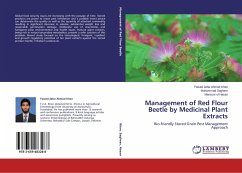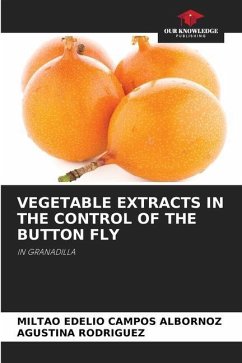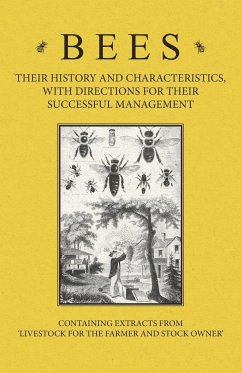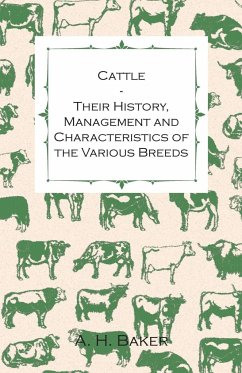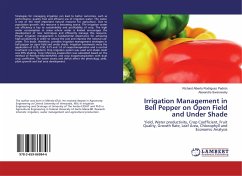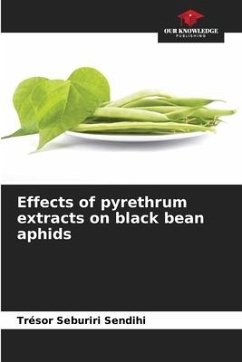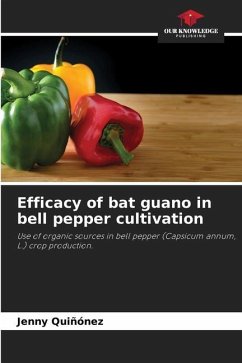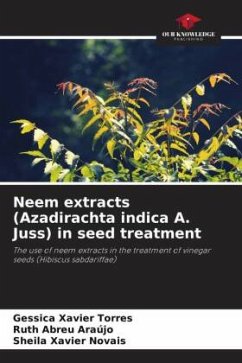
Plant extracts in the management of Meloidogyne
Peppers
Versandkostenfrei!
Versandfertig in 6-10 Tagen
27,99 €
inkl. MwSt.

PAYBACK Punkte
14 °P sammeln!
This book deals with the susceptibility of the bell pepper crop (Capsicum annuum L.) to attacks by pests and diseases, which can cause losses in productivity ranging from partial damage to total destruction. Among the main biotic problems, phytonematoids have been found to directly interfere with the quality and productivity of the crop. The management of phytonematoids presents a series of inconveniences due to the high degree of polyphagism, parasitism and the diversity of host plants. Among the options known and applied for control, nematicides stand out, used on a large scale because they ...
This book deals with the susceptibility of the bell pepper crop (Capsicum annuum L.) to attacks by pests and diseases, which can cause losses in productivity ranging from partial damage to total destruction. Among the main biotic problems, phytonematoids have been found to directly interfere with the quality and productivity of the crop. The management of phytonematoids presents a series of inconveniences due to the high degree of polyphagism, parasitism and the diversity of host plants. Among the options known and applied for control, nematicides stand out, used on a large scale because they are highly efficient. However, these bring with them a series of economic losses. Due to the major problems already mentioned, the use of chemical products has been losing momentum for some years, especially among small and medium-sized producers in various countries. The work therefore presents results that demonstrate the efficiency of different plant extracts, forms of preparation and mode of application in the control of M. javanica applied via foliar spraying, addition to the soil and, combined (soil + aerial part) on the crop.






